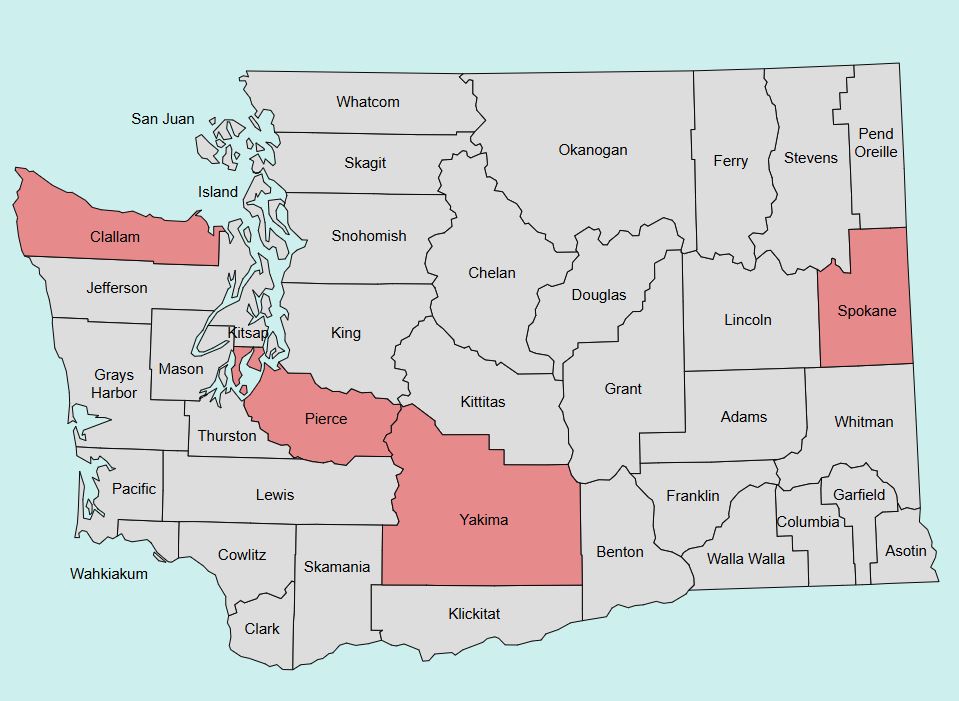
Indian Child Welfare (ICW) Dockets have enhanced legal processes specifically designed to address the welfare of Native American children involved in dependency cases. This docket system ensures that cases concerning Native children are managed in a manner that is both culturally sensitive and consistent with the rights and traditions of Native American tribes.
In practice, judges, attorneys, and caseworkers working within the ICW Docket collaborate closely with tribal representatives to ensure that the child’s best interests are served, while respecting the tribe’s cultural practices, values, and sovereignty. This legal framework plays a crucial role in preserving the integrity of family and community ties within Native American populations, recognizing the unique federal legal protections of Native children and their families.
Current Sites

There are currently four specialty ICW dockets operating in Washington State in Spokane, Clallam, Yakima, and Pierce counties.
Check out NCJFCJ’s interactive map of other ICWA Courts in the nation Here
The Indian Child Welfare Act (ICWA), enacted in 1978, provides the legal framework for these specialized dockets. The ICWA was established in response to the historical harm caused by government policies that resulted in the unjust separation of Native American families. Its intent is to prevent the disruption of Native families and to prioritize the placement of Native children with relatives, tribal members, or other Native families. The ICW Dockets facilitate the careful management of these cases, ensuring that the child’s connection to their cultural heritage is upheld while safeguarding their overall well-being.
The five principles of ICWA Courts that frame the “gold standard of child welfare” are:
- Judicial Leadership
- ICWA Data Collection
- ICWA Trainings (Spirit and Letter of Law)
- Tribal Stakeholder Collaboration
- Gold Standard Lawyering and Social Work




